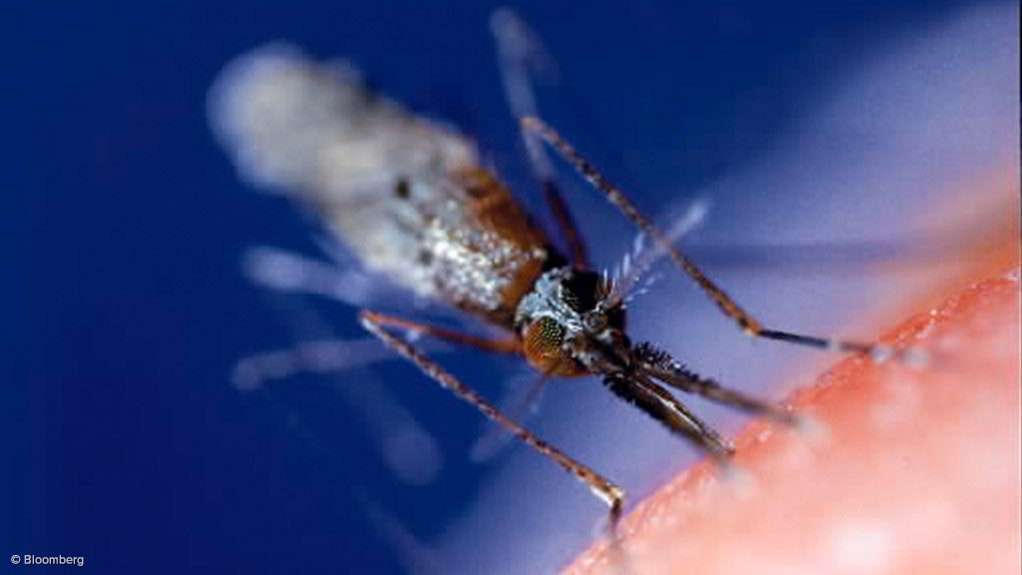This article is part of a series The Conversation Africa is running during malaria week in the Southern African Development Community. You can read the rest of the series here.
Malaria is a killer that has spent thousands of years adapting to the habits of its victim. Although the first confirmed case of human malaria dates to 450 AD, a millennia and a half later, the world is still battling the parasite that causes this disease. Today at least 3.3 billion people, or almost half of the world’s population, are at risk of contracting malaria. The heaviest burden is in Africa where an estimated 90% of malaria deaths occur.
To eliminate malaria and alleviate the disease scientists have to develop drugs that kill the parasite in the blood. But to prevent the spread of the disease in a community, these drugs also have to kill transmissible versions of the parasite that develop.
The challenge is that the world is running out of usable antimalarial drugs. Antimalarial drugs that are widely used have a limited usable lifespan. This is because parasites develop resistance. The current drugs are becoming less effective as the parasite develops resistance against them.
To tackle this problem, researchers are investigating potential antimalarial drugs with multiple targets to overwhelm the parasite and reduce resistance development. Multi-target drugs may also speed up the drug discovery and development process.
The multi-target inhibitors that we are studying have been shown to target both the disease causing and transmissible forms.
Understanding the malaria parasite
The malaria parasite is an amazing shape shifter. It is able to change its shape in different environments to cause and spread the disease. In infected humans, the parasite lives within red blood cells leading to the symptoms and complications of the disease. The main symptoms include fever, headaches and vomiting which usually appear between 10 and 15 days after the mosquito bite.
But when a female mosquito bites a human infected with malaria, a special form of the parasite, called a gametocyte, is drawn up from the person along with their blood. This special parasite then develops further in the newly infected mosquito and matures into another form of parasite that can be transferred to another human when the mosquito bites someone else. This leads to the spread of malaria.
With repeated exposure to a drug, the parasite cleverly adapts to the presence of the drug by changing its DNA. This means that the drug target in the parasite is no longer affected by the drug or that the parasite gets rid of the drug before it can reach its target.
To slow down the ability of the parasite to develop drug resistance, malaria medicine has been formulated into a combination therapy. It combines two antimalarial drugs that target different biological processes in a single tablet. It is considerably more difficult for the parasite to simultaneously change both targets in order to become resistant against both drugs. With combination therapies, the parasite has a significantly reduced chance of developing resistance compared to a single therapy.
Even though combination therapies have assisted in slowing down parasite drug resistance, the parasite is developing drug resistance to an antimalarial drug faster than new drugs are being developed and approved.
A multi-pronged approach
To increase and sustain the antimalarial armoury, drug developers need to deliver drugs faster and increase the lifespan of the drugs that are in circulation.
The answer to this conundrum may lie in the field of antibiotic drug discovery.
The antibiotic field is currently developing resistance-resistant antibiotics that have multiple targets instead of single targets. Instead of a combination therapy that targets two single targets, a multi-target drug has numerous targets which the parasites need to develop resistance against. This makes it exponentially more effective than a combination therapy in resisting resistance.
One example of the outstanding success of this strategy is the TB drug, SQ109, which is currently in phase II clinical trials. It inhibits multiple targets with potent inhibition of TB cell growth and very low rates of spontaneous drug resistance.
A multi-target drug approach may provide the desired drug discovery breakthrough required to treat malaria. It would speed up the delivery of candidates into clinical practice and decrease drug resistance.
Ultimately, it would stop the spread of malaria by targeting the transmissible forms. In this way, we hope to stay one step ahead of the malaria parasite and make a dramatic difference to curb and eliminate the disease.
Written by Bianca Verlinden, Postdoctoral Research Fellow, Molecular Parasitology, Department of Biochemistry, University of Pretoria and Lyn-Marie Birkholtz, Associate Professor (Biochemistry) DST/NRF South African Research Chair (SARChI) in Sustainable Malaria Control, University of Pretoria
This article was originally published on The Conversation. Read the original article.
EMAIL THIS ARTICLE SAVE THIS ARTICLE
To subscribe email subscriptions@creamermedia.co.za or click here
To advertise email advertising@creamermedia.co.za or click here











